IVPN
IVPN is a small Gibraltar-registered service that has been preserving its customers’ privacy since 2009.
The company's VPN network looks average, with servers in 45 locations across 32 countries. Torrents are supported on all servers, in theory, although the company politely asks that users avoid P2P on US servers.
Platform support is good, with open-source clients available for Windows, Mac, iOS, Android and Linux, and detailed setup guides for routers, some NAS types and more. Whatever devices you've got, IVPN allows you to connect up to five at the same time.
IVPN operates its own DNS servers, a welcome extra touch which helps ensure your online activities can't leak to third parties.
- Want to try IVPN? Check out the website here
A multi-hop feature enables routing your traffic through two VPN servers. For example, you could have the client connect to the VPN in London, travel through the network to New York, then on to the destination website. That website only sees your New York IP address, and even if the New York server is compromised, anyone monitoring it will still only see the London IP address rather than yours.
And there's more. Ad and tracker blocking; support for the speedy WireGuard protocol; payment via Bitcoin, and the list goes on.
This isn't just about the features. IVPN looks and feels like a different kind of VPN company, too, more open and transparent. If you're tired of secretive providers where you've no idea of who is behind them, take a look at this, a page on the IVPN website with names, photos and quick bios of 13 current team members, including where they've worked before.
The full IVPN Pro plan, with all the features we've described here, is priced at $10 billed monthly, and minimally discounted to $8.33 on the annual plan.
A limited IVPN Basic plan is cheaper at $6 billed monthly, dropping to $5 on the annual plan, but that only supports two simultaneous connections, and drops port forwarding and multi-hop.
Although these aren't bad prices for what you're getting, there are much cheaper deals around. IVPN asks $100 for a one-year Pro plan; give NordVPN $125.64 and it'll cover you for three.
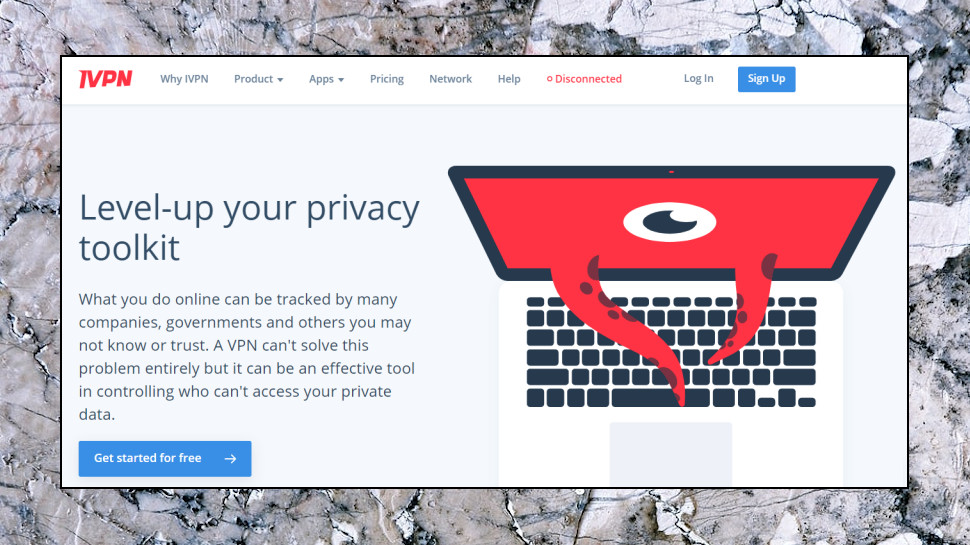
Privacy and logging
IVPN's privacy policy is a clear and simple document of just the right length – enough words to include the detail you need, but not so wordy that the key points get lost.
The document gives you plenty of detail on the items it doesn't record, for instance: traffic, DNS requests, connection timestamps, session lengths, IP addresses and more.
The company is very specific about the information it does collect. Forget the usual vague statements about recording 'payment details', for instance; IVPN shows you the precise fields it stores, with examples to make it clear.
These aren't just reassuring words on a website, either; IVPN has had its no-logging claims verified by an independent audit.
That's very unusual for a smaller VPN, but IVPN hasn't stopped there. More recently, the company has gone through an independent security audit of its 'public VPN service infrastructure... internal backend servers... [and its] public web servers.'
Auditor Cure53 identified 9 issues, ranking 3 as high severity. That's better than it sounds, considering Cure53 checked everything, in huge detail, over 21 man days.
The issues were fixed and verified, too, so the service is now notably secure than it was.
The key message we take from this, though, is IVPN has the courage to put itself through this level of scrutiny in the first place, and to promise it'll repeat the process every year. Check out its blog post for more details, and, if you're interested in the technical details, a link to the final report.
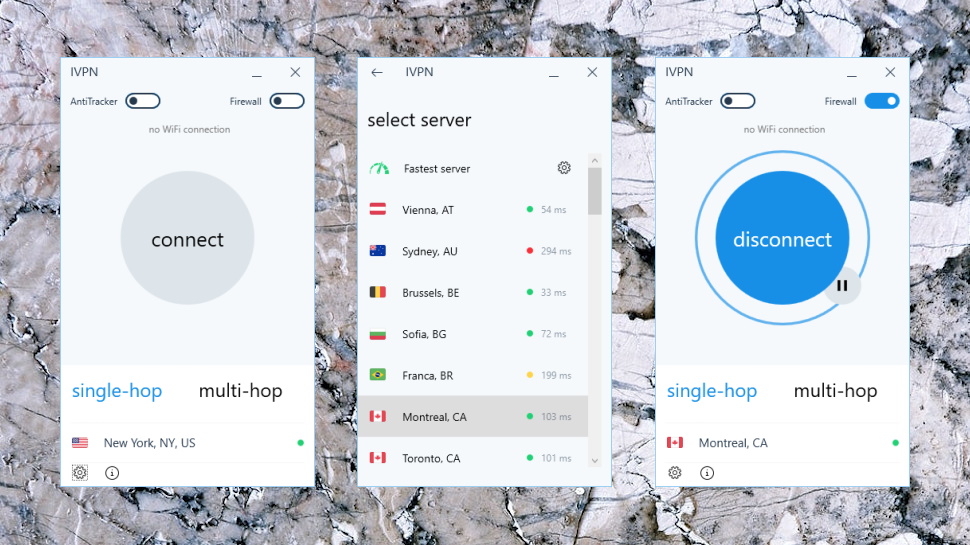
Apps
IVPN offers a free three-day trial. You must provide your email address and payment details when you sign up, but as long as you cancel before the trial ends, you won't be billed.
A post-signup page asks you to choose the devices you'd like to set up. We opted for the Windows client, downloaded and installed it with no hassles or complications.
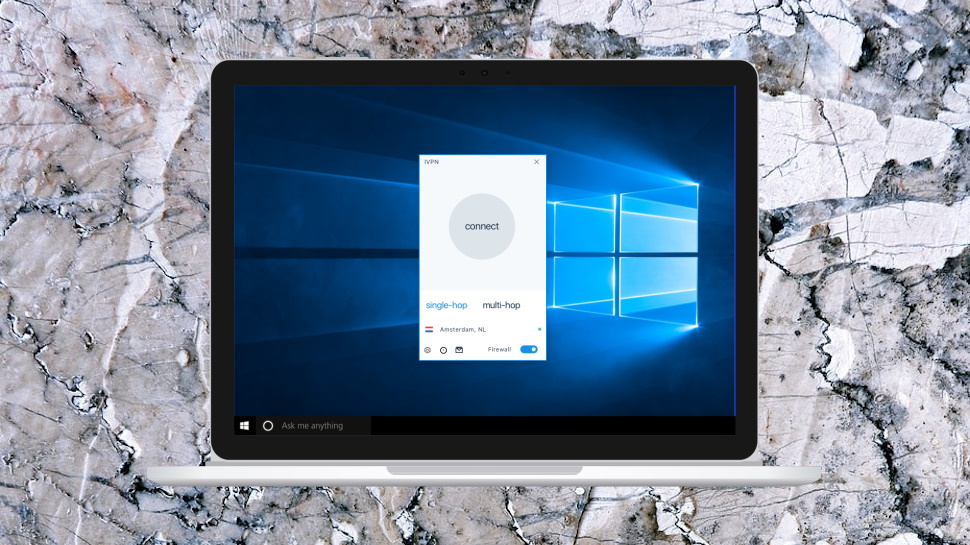
The Windows client looks much like any mobile VPN app: here's a big Connect button to access the fastest server, there's a location list to choose something else, plus a Settings dialog with a pile of configuration options.
Connect times are quick, and the client makes good use of desktop notifications to let you see when you're connected (and, even more importantly, when you're not.)
The location picker is simple, with no extras beyond a ping time to give you an idea of server distance. But there's no favorite system, no search box, no filters, not even a 'last used' list.
There are smart ideas elsewhere, though. For example, to keep screen clutter to a minimum, useful status details - virtual IP, currently selected protocol, session length - are tucked away in a Connection Information panel, only ever a click away.
A Pause feature stops protection for a specified time (5 minutes, 10, whatever you need), automatically reconnecting when time is up.
Tracker and ad-blocking can be turned on and off from the main client panel, handy if they're interfering with the current site.
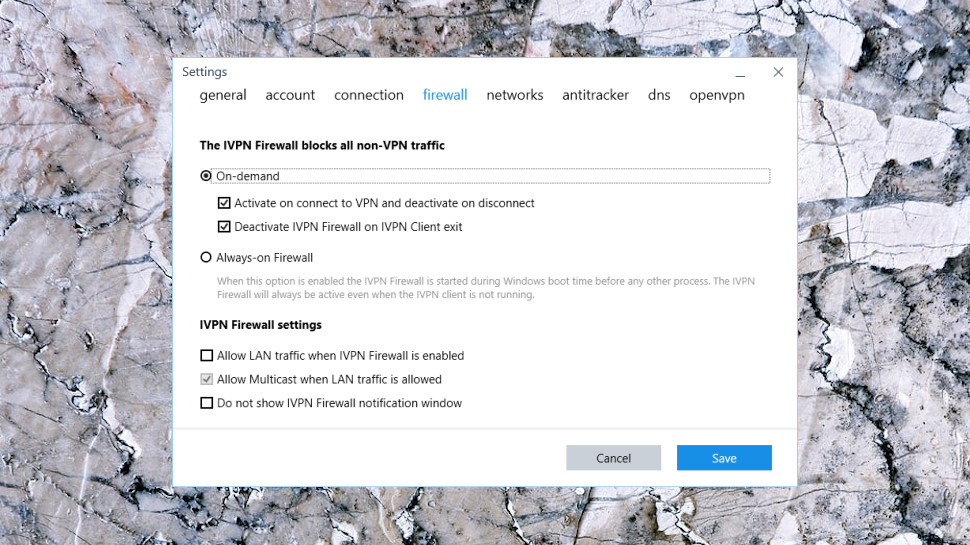
The Settings area is a highlight, and absolutely stuffed with powerful options and tweaks. You can build lists of trusted and untrusted wireless networks and define what the client should do when you connect to them, for instance. The IVPN Firewall is a very configurable kill switch-type feature which blocks non-VPN traffic, and a Connection panel could help you bypass VPN blocking by changing ports or using Obfsproxy.
Experts can even specify custom OpenVPN switches which will override the client's own settings.
IVPN's other significant extra is its multi-hop feature, as mentioned earlier, which can direct your traffic through two VPN servers. You can set this up to define entry and exit servers, for example London and New York. We're unsure how much benefit the average user will get from this, but at least it's easy to use. Click the Multi Hop tab, choose an incoming and outgoing location, and you can connect and use the service as normal.
Our kill switch tests showed IVPN's firewall generally worked well, stepping in whenever we closed the connection, then blocking our internet access until the client could reconnect.
We did manage to effectively 'break' the client, just once, when we closed both IVPN's connection to the VPN server, and the client's connection to IVPN's Windows service. The VPN dropped, but the kill switch didn't kick in, our traffic was exposed, and the client didn't warn us with a notification. If it were minimized we wouldn't know we were unprotected.
We're not counting this as a major issue because it's unlikely to happen in real life; this test is more about seeing how the client handles very extreme situations. Many VPN apps handle this better, though, and we hope IVPN will improve their Windows offering to make it more robust.
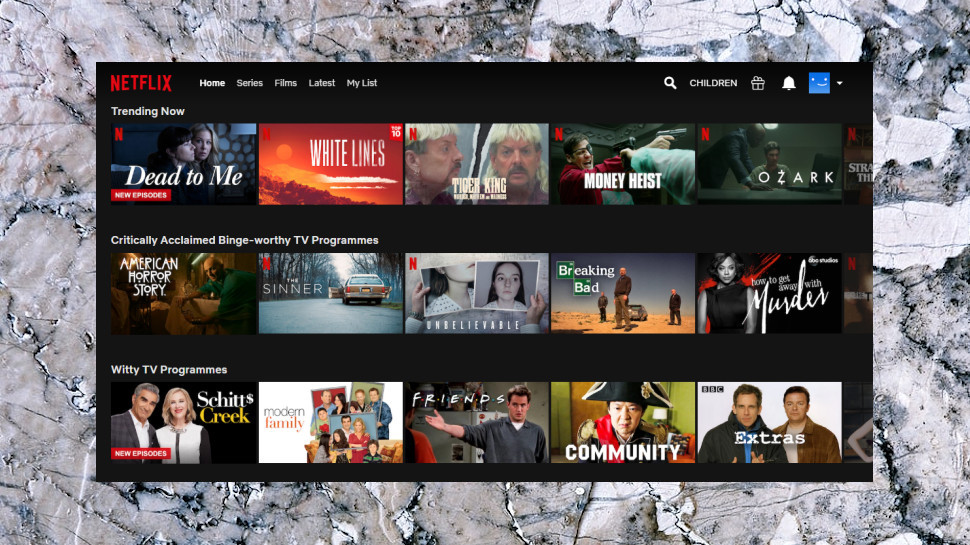
Netflix
IVPN sells itself very much on privacy and security, and the website barely mentions the possibility of getting access to blocked websites.
We logged in to the UK server and tried accessing BBC iPlayer, anyway, but got the standard 'this content is not available in your location' error. The failures continued as US Netflix and Disney+ blocked us, too, but IVPN scored one victory when it got us into Amazon Prime Video.
A support document explained that although some users might have unblocking success, IVPN makes 'no guarantee about the availability of these services when connected to our network.' The company really is focusing on privacy and security above all else, and there's no commitment here to unblock Netflix or anything else.
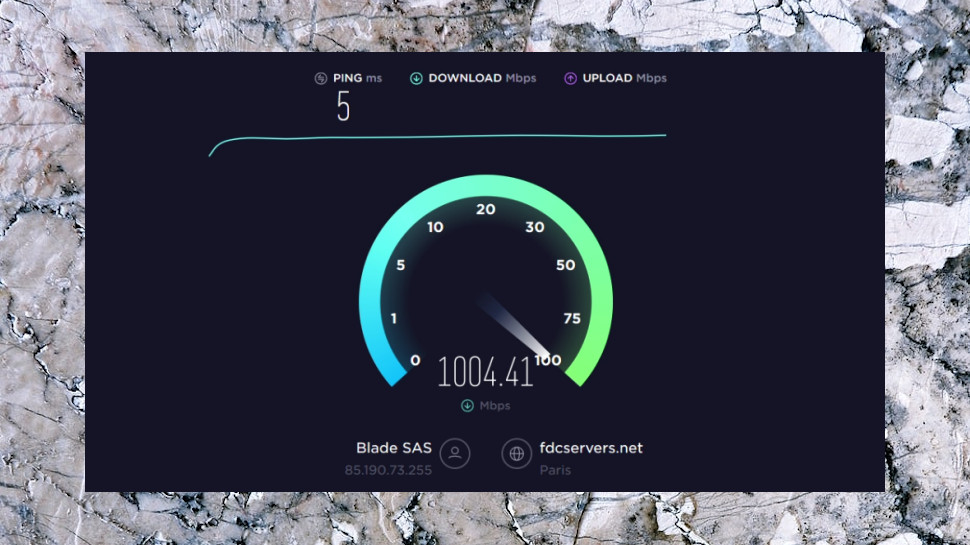
Performance
Our IVPN performance tests got off to a solid start, with our closest UK servers averaging 65Mbps on a 75Mbps line.
European servers were almost as impressive, and for example UK-Italy connections averaged 55Mpps, while UK-US connections peaked at 45Mbps.
To get a better idea of IVPN's capabilities, we switched testing to a central European data center. With the VPN turned off, we managed downloads of 350Mbps. IVPN reached 75-90Mbps when we connected via OpenVPN, but after switching to WireGuard, it raced to 190-230Mbps, a great result.
Our privacy tests kept the good news going right until the end of the review, as IVPN passed with ease: all our new IPs were in the advertised locations, and there were no WebRTC or DNS leaks to give away our real identity.
Final verdict
IVPN's prices are higher than most, and its unblocking results didn't impress, but there's a lot to like here: plenty of apps, powerful features, highly configurable, great speeds. And best of all, an open, transparent and independently audited provider, who's working hard to earn your trust.
- We've also highlighted the best VPN
0 comments:
Post a Comment